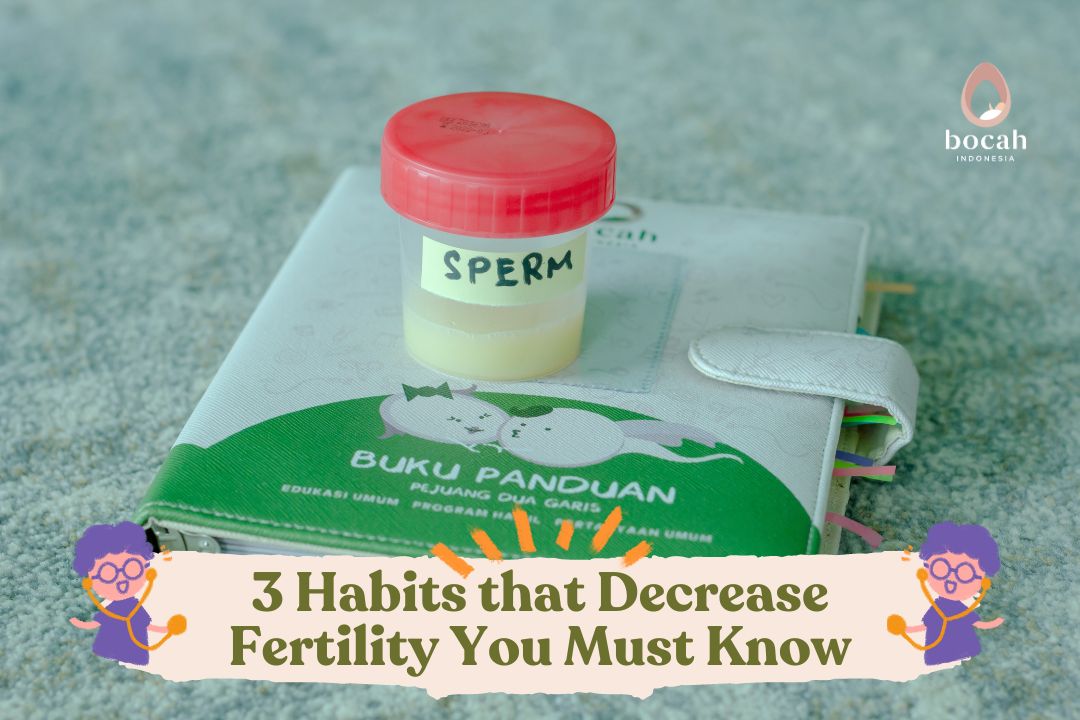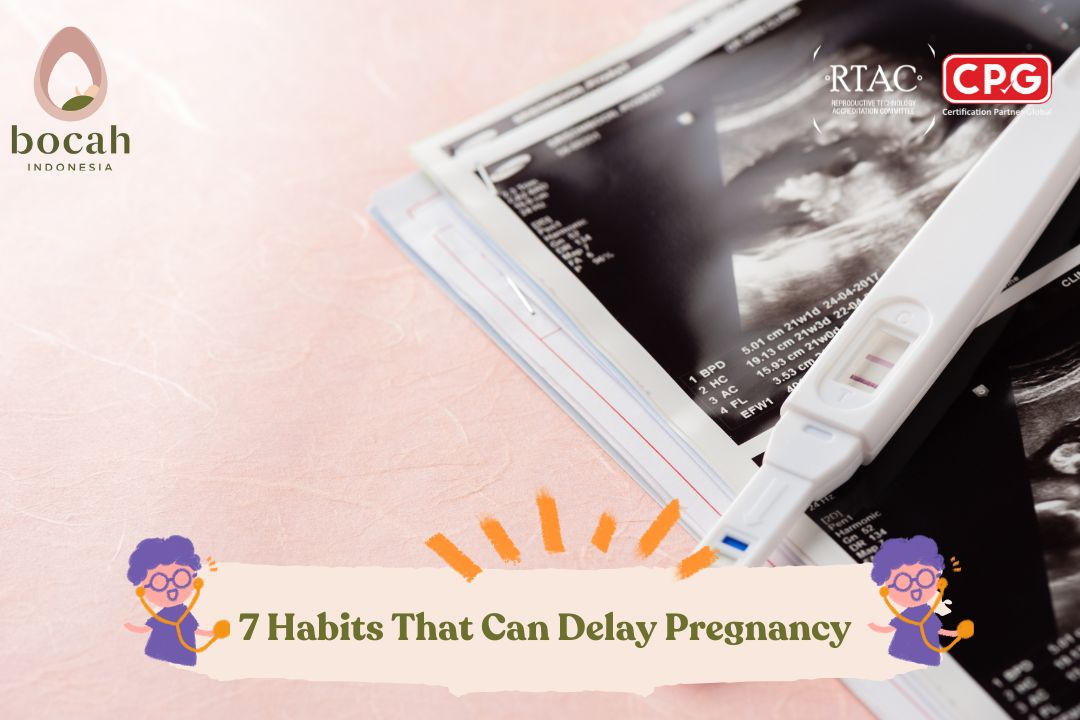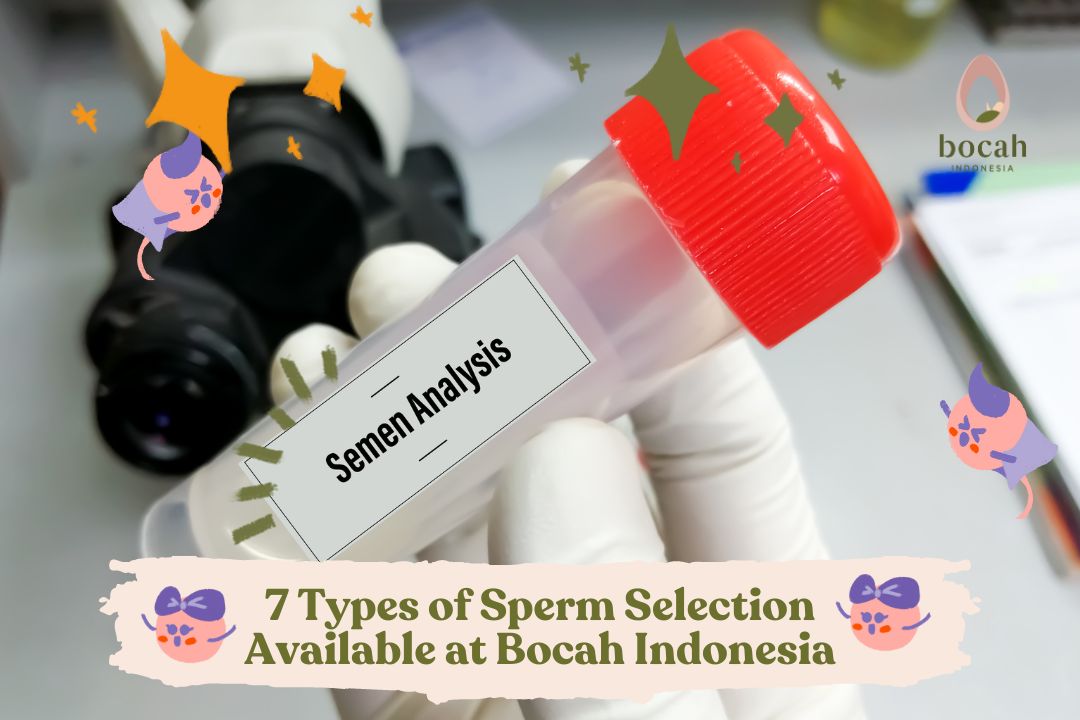3 Habits that Decrease Fertility You Must Know

Infertility in men can be caused by various lifestyle factors that affect sperm quality and reproductive function.
Nearly 1 in 6 couples experience infertility issues, which means they have not been able to conceive despite having regular unprotected sexual intercourse for a year or more.
In these cases, male infertility plays a significant role. Male infertility can be caused by low sperm production, abnormal sperm function, or blockages that prevent sperm delivery. Additionally, lifestyle factors also contribute to male infertility. This condition can certainly have an impact if you and your partner are looking to conceive quickly.
The Influence of Lifestyle on Male Fertility
1. Smoking Habit Affects Male Fertility
One detrimental habit that can decrease male fertility is smoking. The highly hazardous toxins in cigarettes not only damage the lungs but also the overall health of the body, including the male reproductive system.
In April 2016, European Urology published an analysis on the effects of smoking on sperm health. The analysis involved 20 studies and slightly over 5,000 men across Europe. The study found that smokers exhibited a decrease in sperm count, reduced sperm motility (how sperm swim), and poor sperm morphology (sperm shape).
Tanya Mincah tentang Promil?
Research published in European Urology indicates that smoking can lead to a decrease in sperm quality in men. Smokers have decreased sperm concentration, reduced motility (sperm swimming ability), fewer sperm with normal shapes, and higher sperm DNA damage.
The toxins in cigarettes often cause adverse effects on health. Smoking exposes men to high levels of cadmium and lead, metals associated with decreased fertility. Heavy smokers (those who smoke 20 or more cigarettes per day) were found to have higher levels of cadmium in their semen.
Fortunately, sperm health can improve after men quit smoking. The duration of this process is not certain yet, but many studies suggest it takes nearly 3 months for sperm cells to reach maturity.
2. Alcohol Consumption Affects Sperm
Excessive alcohol consumption has many negative effects on health. According to the Centers for Disease Control and Prevention (CDC), in about 35 percent of infertility cases, factors from both men and women can be identified.
Studies show that heavy and continuous alcohol consumption, or binge drinking in men, has a negative impact on sperm. Consuming more than 14 alcoholic drinks per week can quickly decrease testosterone levels and significantly affect sperm count.
In men, heavy alcohol consumption impacts fertility by:
- Lowering testosterone, follicle-stimulating hormone, and luteinizing hormone levels, while increasing estrogen levels, which reduces sperm production Causing testicular shrinkage,
- leading to impotence or infertility Altering gonadotropin release, affecting sperm production Causing premature ejaculation or reduced ejaculation volume Changing the shape, size, and movement of healthy sperm
- Combining drugs like marijuana or opioids with alcohol also decreases fertility.
Furthermore, alcohol-induced liver disease can affect sperm quality. Recent studies in animals and humans also indicate that alcohol exposure during early development leads to DNA changes.
3. Lack of Exercise and Unhealthy Diet
If men rarely or never engage in physical activity and maintain an unhealthy diet, these habits can lead to obesity. Obesity, in turn, can negatively impact health.
Italian researchers reported that obesity in boys can be linked to testicular size reduction and an increased risk of infertility in young men.
The study focused on boys aged 2 to 18 who were referred to the Pediatric Endocrinology Unit at the University of Catania in Sicily for weight control.
The researchers also found that boys with normal insulin levels had testicular volumes up to twice as high as those with high insulin levels.
In overweight or obese boys, hyperinsulinemia (insulin resistance) tended to result in testicular volume reduction compared to other boys, the researchers said.
Testicular size reduction, called testicular hypotrophy, according to researchers, can increase the risk of male infertility.
“Testicular volume has a direct relationship with semen and tends to influence hormone function,” said Dr. Alex Robles, a fertility expert at the Columbia University Fertility Center in New York, to Medical News Today.
Those were some habitual patterns that can affect male fertility. If you’re considering a conception program, change your habits to live a healthy lifestyle and consult a doctor.
Source:
- Reproductive Biology and Endocrinology. Diakses 2023. Lifestyle factors and reproductive health: taking control of your fertility https://www.ncbi.nlm.nih.gov/pmc/articles/PMC3717046/
- International Journal of General Medicine. Diakses 2023. Causes and Risk Factors for Male Infertility: A Scoping Review of Published Studies https://www.ncbi.nlm.nih.gov/pmc/articles/PMC9268217/
- BioMed Central. Diakses 2023. Lifestyle and fertility: the influence of stress and quality of life on male fertility https://rbej.biomedcentral.com/articles/10.1186/s12958-018-0436-9










